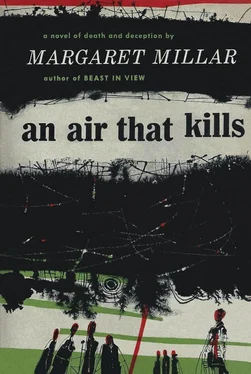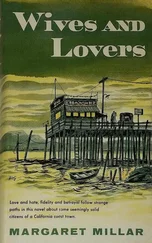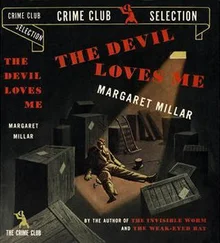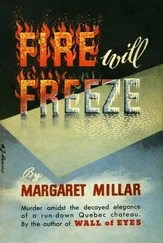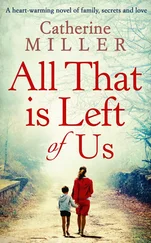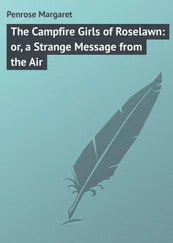This led to the third picture, blurred and more distorted yet somehow more real than either of the others, of Thelma, the woman who wanted a child, and with single-minded determination and not a trace of moral misgiving, had gone ahead and found the means to conceive one.
Harry had stopped whistling and was peering out of the window for the turnoff to the lodge.
“Why do you feel,” Turee said suddenly, “that if I start to ‘analyze’ Thelma, as you call it, something will happen to your marriage?”
“I don’t feel that.”
“It was implied.”
“Oh, Ralph,” Harry said with sadness, “don’t. Don’t go on. Some things are better left alone. Analyze your students, if you like, or your family, anyone else but Thelma. Perhaps she isn’t entirely happy, but I’m doing my best to change that. There are certain factors involved that I won’t go into.”
“She wants a child.”
Harry looked surprised. “How did you know?”
“She told me.”
“Just tonight? On the phone?”
“Yes.”
“Oh, then that’s what upset her. She must have gone to sleep and been awakened by another of her nightmares. She’s had quite a few of them this spring. She dreams she’s borne a baby, only something happens to it, it’s deformed, or it gets sick and dies; once it was kidnapped by a Chinaman. She’d been to the laundry to pick up my shirts that day, that’s how the Chinaman got into it, I guess... I haven’t told Thelma yet, I want it to be a surprise, but I’ve visited two adoption agencies this week, making inquiries... The turnoff should be along here some place.”
The turnoff was months ago, Turee thought. You missed it, Harry.
The lodge had been built by Galloway partly as a wedding present to Esther and partly as a place to hide out in until the scandal of his divorce from his first wife had blown over. It turned out not as a hideaway but as a showplace the natives around the bay, all the way from Penetanguishene to Tobermory, came to admire and criticize. The structure was, in fact, too elaborate for its setting and its function. The lower story had been built of native stone and the second story was in English half-timbered style, with a shake roof angled sharply to shed the heavy snow that fell during the long winters.
The caretaker’s quarters over the garage, which was an exact miniature of the house proper, were inhabited from spring to fall by an elderly, morose ex-mechanic named MacGregor. Theoretically, MacGregor’s job was to keep the house and ground tidy, the woodboxes filled and the plumbing in order. In actuality, he spent most of his time down in the boathouse fussing over Galloway’s Estron, a diesel-powered launch.
MacGregor and only MacGregor operated the boat. He did not insist on this prerogative, he merely let it be understood that the Estron was high-spirited and temperamental, and, like any such woman, needed a strong and knowing hand if she were to avoid the disastrous impulses of her nature.
No one, not even his wife, knew why Galloway had bought the boat. Galloway hated and feared the water, the slightest swell made him seasick, and he had no talent for or interest in the Estron’s mechanical aspects. When MacGregor was at the wheel, Galloway sat up front beside him, his fists clenched, his eyes moving uneasily in their sockets so that they seemed to be separately afloat, responding to every wave. When the trip was over and he was back on dry land, he always looked pale but exhilarated, as if he had proved himself by conquering an ancient enemy.
MacGregor’s quarters were dark. When there was a weekend party going on he kept aloof, disdaining what he called the shenanigans, and appearing only when Galloway and his guests wanted to use the boat.
Turee parked his car between two jack pines and the two men began walking toward the lodge, single file and in step, like a pair of convicts chained together by invisible irons. Only one light was burning, in the main room downstairs, and the fire in the grate was barely alive.
Hepburn had gone to sleep in the red leather lounging chair, a book on his lap. He woke up at the sound of the front door opening, squinted across the room and said crossly, “About time somebody showed up. I feel as if I’ve been conducting a one-man wake.”
Turee raised a sardonic eyebrow. “Maybe you have.”
“No luck finding Ron?”
“He’s not at home. We called Esther and she hasn’t seen him or heard from him and doesn’t seem to care one way or another. Then we talked to Thelma.” He shot a glance at Harry to see if he would react to the name, but Harry was standing in front of the dying fire, his back to the room. “Thelma says Ron came by to pick up Harry, they had a drink together and some talk and then Ron left, presumably to come up here.”
It was merely the skeleton of the truth. Only an expert could add the flesh and blood and muscle and all the vital organs that would make it a whole, borrowing a little here, a little there, from Thelma, from Harry, from Ron, from Esther, from all the other people who had affected all these people. A truth is as complicated as a man. Constructing and articulating a skeleton is not enough. It must be made to live.
So now what, Turee thought. What do I do now?
Hepburn provided a temporary answer. “You fellows want a drink?”
Harry had turned from the fire and picked up a magazine from the drum table. The magazine was an old Maclean’s left over from the last time the lodge had been occupied, October of the previous year. The sight of the date sent a spasm of pain across Harry’s eyes. Last year , he thought. Last year at this time I was happy. I owned the world. Only last year...
On a sudden impulse he folded the magazine and threw it with vicious accuracy into the center of the fire. It began to smolder.
“Now what the hell did you do that for?” Hepburn said.
“I don’t know.”
“There was an article in it I wanted to read.”
“Sorry.” The magazine had caught fire. Harry watched it burn with a kind of bitter satisfaction. Last year was over. “It’s late. I’m tired. I’d better be going to bed.”
“I’ve just made you a drink.”
“I don’t want it.”
“You need it, Harry-boy.”
“No thanks. It’s been a long day. Good night.”
“Take it easy, Harry-boy.”
“Oh yes. Sure.”
He dragged himself upstairs, leaning heavily on the banister as if his legs had withered. A minute later Turee heard the dropping of shoes, the squeak of springs, a long sigh.
Hepburn handed Turee his drink. “What’s the matter with him, anyway?”
“What he said. A long day.”
“Baloney. I’ve never seen Harry tired in my life.”
“Now you have.”
“There must be a reason. Something’s up with Thelma, maybe?”
“Maybe.”
“Thelma’s a funny girl, if you ask me.”
“I don’t have to ask you,” Turee said, staring gloomily into the fire, trying to imagine what Thelma was doing right now. Planning? Weeping? Having second and third thoughts, or sleeping peacefully in the conviction that she’d been absolutely right the first time? It was impossible to tell.
“But I guess all women are.”
“Not all. Nancy’s different.” Turee believed this, and would continue to believe it until the next time he and his wife had a misunderstanding.
“You’re prejudiced.” Hepburn finished his drink and laid his empty glass decisively on the stone mantel. “Well, anyway, thank God I’m not married. On which cheerful note I shall depart.”
“Go ahead. I’ll turn out the lights.”
“Perhaps you’d better leave a couple of them on in case Ron...”
“Oh. All right.”
Читать дальше
